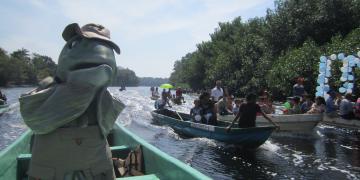Construction of permeable dam structures as sediment traps and basis for mangrove rehabilitation
Socio-economic measures to promote sustainable land-use
Capacity building on “Building with Nature solutions”, targeted at government officials, private sector, students and local communities
Policy dialogue to develop governance arrangements for improved coastal zone management
